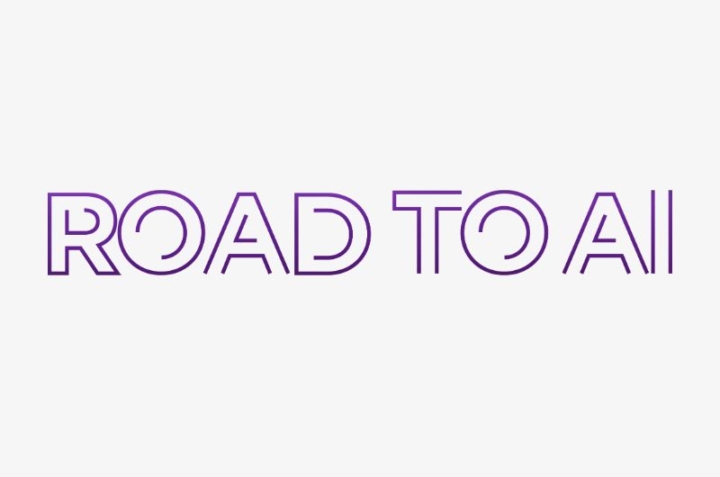Generative Artificial Intelligence (GenAI) is set to be deployed in many fields within the Automotive industry. That said, the real potential of GenAI lies in the possibilities it creates for seamless operations in auto manufacturers’ new or less optimized businesses, cementing a priceless position in productivity.
“2023 must be the year of productivity.” This was the keynote message delivered by Volkswagen’s CFO earlier in March, serving as a potential motto for long-standing players in the automotive industry. In an industry that is mature, complex, and fiercely competitive, operating margins are shrinking while their growth is also being restricted despite the capture of new market share.
Looking to the years ahead, manufacturers have already pinpointed growth drivers, but short-term productivity remains at the forefront. As they embark on this roadmap, GenAI could become an invaluable asset, especially considering the tool’s rapid expansion in recent months, driven by its increased accessibility.
Improving economic efficiency
The story of AI and automotive goes way back. For over two decades, the industry has utilized the tool for various applications. On the flip side, GenAI adds a new, multi-dimensional flexibility in areas where enhanced productivity was neither envisioned nor feasible. Its technology delivers a personalized experience for sales, vehicle handling and vehicle repairs, guiding customers, dealers, and suppliers along their own individual path. More importantly, by augmenting our capabilities and leveling up our problem-solving skills, GenAI helps us solve equations that were previously elusive. In doing so, the tool paves the way for improved economic efficiency.
The future seems decidedly promising. Practically speaking, GenAI will not systematically revolutionize the industry at large; rather, it will trigger trailblazing progress to optimize specific fields.
For instance, its technology can repurpose the procurement process which is a core component in the Auto ecosystem. GenAI’s expertise in analysis and content generation makes it a robust tool for drafting contracts, tenders, and category strategies. Not to mention sourcing plans with purchasing groups that would remain unknown to even the wisest of humans! GenAI saves buyers precious time, offering fresh perspective and sharpening their focus for negotiations.
Shifting the testing paradigm, to propel innovation
GenAI can also drive innovation in never-before-seen ways. Creativity is no issue in the Auto universe. Instead, it’s the drawn-out developments with expensive testing. By simulating data in sandbox environments that closely mirror real-life, GenAI opens up different possibilities. When it comes to driverless vehicles which require further testing and learning, GenAI will foster progress without the need to put a car on roads that are often unwelcoming.
By the same token, GenAI enables us to rethink our research to create new materials and synthetic fuels. Currently, this involves painstaking tests. Going forward, a turbocharged and high-performance GenAI will work out how to increase material capacity and maximize resources that are in short supply.
Leveraging the power of autonomy
On a quest for growth drivers, automakers have gradually morphed into technology companies and software publishers. However, shortcomings persist. These include: challenges hiring software developers in a pressured market, home to key players with strong appeal; risky disintermediation through partnerships; and a culture that continually prioritizes automobiles over technologies. GenAI is a catalyst for co-development and a universally shared language, expediting progress by promoting better mutual understanding between two distinct worlds and reducing manufacturers’ reliance on expert partners.
The same can be said of insurers and direct sellers who solicit manufacturers. GenAI goes one step further with its applied models, elevating contracts and experiences to an entirely new level of uber-personalization. We will say goodbye to models based on snapshots and current trends, replacing them with the compelling vision of policyholders and buyers, ultimately providing significantly more variables for auto manufacturers. It’s a golden opportunity for the industry to innovate and thrive.
Developing synergies between distinct worlds
GenAI boasts tremendous potential for the Auto industry. Nevertheless, despite relatively straightforward use cases, implementation is a different ballgame! The thorny issue is how to securely operationalize the system, from streamlining production to engineering the architecture.
To fully harness the power of generative models, restoration of core data is no longer a viable option. As such, the availability of high-quality data, at the right time, is a minimum requirement!
Challenges aplenty are in store for industry players looking to operationalize GenAI in the months ahead. How will they integrate AI into their company ecosystem? How will they select the best models, avoid duplicates, and combine systems? And how will they ensure compatibility between their “auto-centered” corporate culture and technology-driven startups who will inevitably be in demand?
Aside from GenAI’s business-specific benefits, it also has the potential to develop synergies between different departments working within automaker companies. This way, the tool presents a solution to one of the industry’s deep-rooted problems: knowledge transfer. GenAI assists employees in relocating knowledge stored in-house byarticulating intentions just as staff would ask a fellow human being a question before holding regular conversations. As a result, teams could readily access relevant information whose scope extends beyond their specific organization or department. In doing so, those teams would be empowered to make informed decisions quickly and establish impactful strategies.
GenAI’s ability to summarize swathes of data as well as apply and process natural language means that collaboration can be accelerated between worlds that sometimes lack in mutual understanding. Software developers can then factor in a vehicle’s telematics requirements, as outlined by systems engineers. Alternatively, production planners will optimize supplies based on sales forecasts and production requirements – a scenario BMW already tested out.
If properly applied, GenAI breaks down the otherwise impenetrable optimization silos. It’s how auto manufacturers will cement the priceless position in productivity they so desperately need to keep driving forward.
Let's continue our exploration:
Get your questions answered by our Data & AI experts. Find out how we can help you realize the full potential of AI for your organization.
Read our “Road to AI” series to explore the many facets of artificial intelligence and unlock its power to grow your business.






